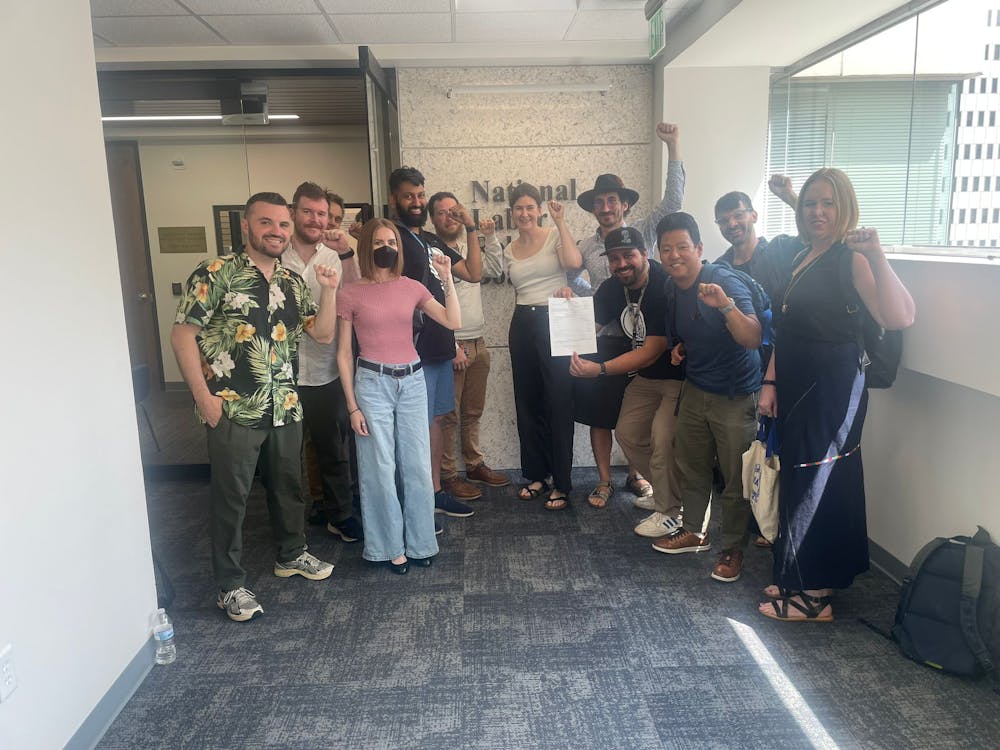The African Students Association (ASA) hosted a conversation with Fuambai Sia Ahmadu, a Sierra Leonean-American anthropologist specializing in the study of female genital mutilation (FGM), on Friday, March 10.
In her brief presentation and the extensive discussion that followed, Ahmadu described how FGM is practiced by the Kono people, her ethnic group in Sierra Leone. She argued that the practice has been wrongfully vilified by Western media and human rights groups who often do not attempt to understand its cultural significance.
Since the 1970s there has been an international movement against FGM, with human rights groups claiming that the practice stems from gender inequality and male sexual domination of women. Ahmadu said that the Western ideas about FGM are built on stereotypes and misconceptions.
“I want to continue challenging those perceptions and look more critically at this concept and how it’s been construed,” she said. “I don’t agree with the terminology, but what is called FGM is usually the most severe form, which is actually the rarest form in sub-Saharan Africa.”
Ahmadu countered the conception that women are oppressed and forced to undertake FGM by a male-dominated society by explaining how her own culture views the practice as an initiation into womanhood. She also pointed out the male equivalent, which is far less controversial.
“Most ethnic groups practice female and male initiation,” she said. “Both processes are celebrated in very grand style. I just came from there. We were celebrating International Women’s Day, and there is much ground support for these practices and resistance to anti-FGM movements.”
According to Ahmadu, the discourse about FGM is influenced more by social gender biases than the practice itself. She cautioned against identifying it as only a female practice.
“Why are we privileging boys?” she asked. “We have male circumcision. We can remove the entire foreskin of the boy and that’s not an issue, that’s not protested. I think we need to be careful about discriminating against girls and women.”
She also identified a hypocrisy in Western criticism of FGM by comparing it to common cosmetic surgeries that also fall under the World Health Organization’s definition of FGM.
“They’re almost identical in terms of the aesthetic effect and also the anatomical parallels,” she said. “Female genital cosmetic surgery is what they call it. So for me, that raises the question: Why are we labelling not the procedure but the people and the culture as FGM? I think we need to treat so-called non-medical genital surgeries all the same. We shouldn’t privilege certain categories of people.”
Sumera Yego, a freshman representative in ASA, invited Ahmadu to host the discussion after she gave a guest lecture in one of Yego’s classes last semester.
“She gave a really interesting perspective, because more often than not, when doctors go to third world countries, they come with this ‘Western Savior complex’ and condemn the cultural practices that are there without at least trying to understand them,” Yego said.
She thought that Ahmadu’s consideration of Western media and how it impacts perceptions about cultural topics like FGM was especially interesting. Yego said that there are many stereotypes about Africa and African cultures, and she hoped Ahmadu would bring to light one that is less commonly discussed.
Yego said that Ahmadu’s background and public speaking skills enhanced the presentation and discussion.
“This is a woman who has worked for so many international organizations, even organizations that condemn FGM,” she said. “You can’t deny her credibility and her expertise in this field. She was pretty politically correct. She never made any vast generalizations without coming back to ‘at least in my culture.’”
However, Yego said that it often seemed as though Ahmadu was using the experience specific to her culture to justify the practice of FGM everywhere.
“It’s hard to criticize somebody when they say ‘from my culture,’ because you can’t speak for their culture,” Yego said. “Although she made it clear that she was talking about her culture and other specific cultures that she’s studied, it could have come off to a lot of people like she was [using] the practices of a couple of cultures to justify what is in many cases the marginalization and violation of women’s rights.”
Still, Yego said her goal in inviting Ahmadu was for attendees to understand that FGM is more complex than it is often portrayed to be.
“If you’re in a position where you can make change, why not at the very least try to inform yourself?” she said. “Try to understand that the world as you understand it is shaped by stereotypes that have been fed to you as truth. And even if you left not agreeing with anything she said, at least you left knowing that these issues are a lot more complicated than people make them out to be.”




